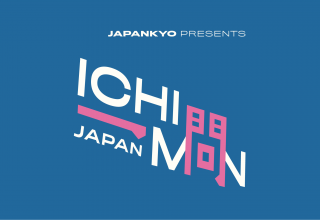
White rice said to contain fertility boosting “pregnancy bacteria” (ninshinkin) is being sold online in Japan, despite there being absolutely no scientific basis for the claims of the sellers of this expensive rice, which is being called “pregnancy rice” (ninshinmai)
According to Mainichi Shinbun (May 2), this fraudulent and overpriced rice is being sold on the virtual marketplace app Mercari. Sellers claim that the “pregnancy bacteria” that the rice is said to contain, is spread to things that are touched by pregnant women or women who have recently given birth and that taking over these things can lead to a higher chance of getting pregnant.
However, medical experts point out that there is no basis for the claims made by these sellers. The Japan Society for Reproductive Medicine has refuted the existence of this fertility boosting bacteria, saying “This has never been researched and there is no literature on this topic.”
Along with the rice, sellers often include, pregnancy planners/journals, pictures of pregnancy tests showing positive results, and personal testimonials, such as “I have six kids so this bacteria is strong.” and “My friend received the pregnancy rice and had eight kids.,” all in an effort to get buyers to believe that the rice actually has fertility boosting properties.
Guidelines on how to use the rice tell buyers to carry a small amount of it in a small bag as a charm or to make it into a rice ball and eat it. However, because the sale of this rice is not regulated, there are no guarantees about its quality or whether it is even safe to consume.
A source knowledgeable about this trend, told Mainichi Shinbun that
since 2013 several hundred sales of pregnancy rice have been made via
Mercari.
Although the going rate for about 150 grams (1 gō, 合) of the pregnancy rice tends to be around 500 JPY, at least one seller tried to charge three times that amount. This seller put up three pregnancy rice listings between March and April in which she charged 1,500 JPY for 150 grams of the rice. In her listings she explained that she and her husband had taken
30 kilograms of rice to be blessed at a Fukuoka fertility shrine. However, she took the listings down after people began to ask her to prove her claims with messages like, “How did you carry 30 kilograms of rice?” and “Can you prove this with a receipt?”
Making money off the suffering of others
A woman in her 20s from the Kanto region, who has sold pregnancy rice on multiple occasions told Mainichi Shinbun, “I was single the whole time and have never been pregnant.,” despite saying in her product listings “Thanks to pregnancy rice I was able to have a child.”
As for why she began selling the rice, she explained that she was told by a friend “It’s an easy way to make a bit of money. It’s fine if you’re not pregnant.” so she did it telling herself “It’s just a superstition. If they buy the rice women can become more positive about trying to become pregnant.”
Unfortunately, it isn’t always like the seller above told herself. A woman in her 30s from Tokyo, who on one occasion bought pregnancy rice, angrily told Mainichi Shinbun “After having undergone infertility treatment for four years, my body and my mind just couldn’t take it any longer, so as a final gamble I thought I’d try anything. I paid for 150 grams but I only received about a third of that.” She also explained that about a month after receiving the rice a catalog advertising fertility enhancing nutritional supplements arrived at her house in the mail. Thinking this suspicious she called the vendor that sent the catalog to her but she was told “We cannot reveal the details of how we make our sales list.”
Dr. Yasunori Yoshimura, Prefessor Emeritus at Keio University and the former board chairman of the Japan Society for Reproductive Medicine, strongly condemned the actions of these sellers telling Mainichi Shinbun, “Pregnancy bacteria has no effect either scientifically or medically. Even if it is just small sums of money, these sales are malicious and should be considered fraud. Women dealing with infertility issues, become desperate and have a tendency of thinking ‘I want to try anything if it helps me get pregnant.’ By no means can I allow these actions which target the weakness of these people. To even use the expression ‘bacteria spreads’ when discussing something as wonderful as pregnancy is extremely inappropriate. I fear that pregnancy rice is unhygienic and as such should by no means be consumed.”
Source: Mainichi Shinbun
Image: Pixabay














